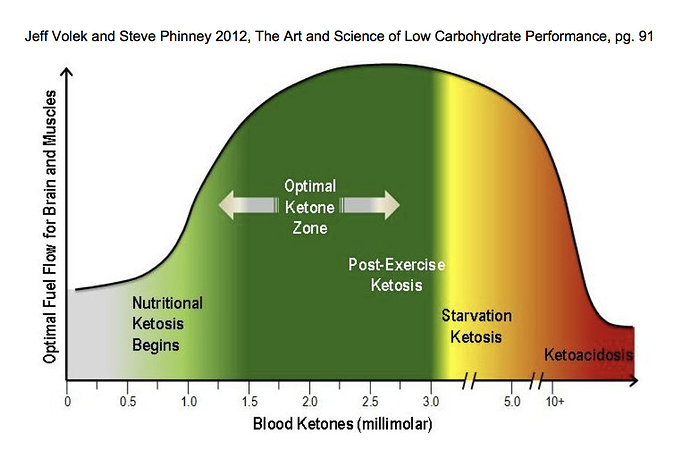Hello, I’m a veteran keto follower who went off the wagon and just recently got back on. Anyhow, my usual ketone levels (measured by blood meter) is between .5 and 1.5. This morning, before I rode my Peloton bike for one hour, the ketones were .8.
Now, some 5 hours or so after my bike ride, my ketones are 3.0. They’ve NEVER been that high. I happen to have two different blood meters (I lost one of them, so I bought a new one, then I found the first one, so now I have two). They measure the same.
Is this unusual or cause for concern? After my first reading that seemed high this afternoon - it was 2.8 - I ate some low carb cookies (about 15 grams of carbs for the four cookies I ate) and had a quarter cup of macadamia nuts. The ketones only increased after these snacks. I measure my carbs online, and I’m at around 50 total carbs for the day, around 30 net carbs.
I’m wondering if the intense exercise is causing this? I kind of hammered it on the bike ride for the hour, at least for me, I did. I plan on doing my bike 3x a week, alternating with my Pilates workouts 3 x a week.
Anyhow, any advice would be welcome and thanks in advance!



